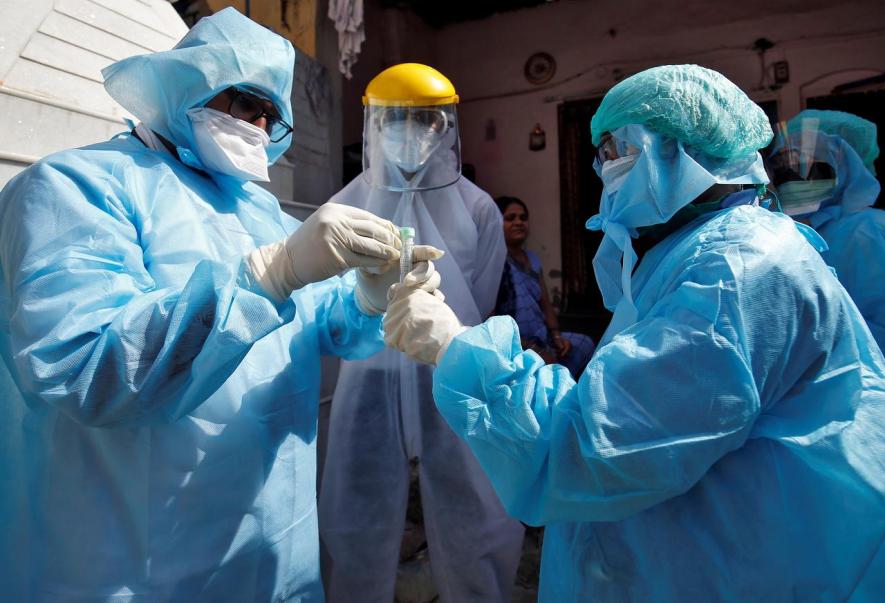40% of COVID-19 Cases with Severe Infection Have no Contact or Travel History: ICMR Study

Image Courtesy: Reuters
New Delhi: About 40% of COVID-19 cases with severe acute respiratory infection (SARI) did not have any history of contact with infected persons or those with international travel history, and they were reported from 36 districts of 15 states, an ICMR (Indian Council of Medical Research) study stated while recommending these places for priority containment measures.
A total of 104 of the 5,911 patients with SARI tested positive for COVID-19, out of which 40 cases did not report any history of contact with a known case or international travel, according to the study which was conducted from February 15 to April 2.
The chances of getting infected among SARI patients increased from 0% before March 14 to 2.6% by April 2, the study which was released on Thursday said.
Also, males accounted for higher number of COVID-19 cases and also patients aged above 50 years of age.
According to the study, which has been published in the Indian Journal of Medical Research, a total of (104) 1.8% of the 5,911 SARI patients tested were positive for COVID-19.
These cases were reported from 52 districts in 20 states and Union territories.
"In all, 39.2 per cent COVID-19 cases did not report any history of contact with a known case or international travel," the study said while 2% reported contact with a confirmed case and 1% reported recent history of international travel.
Data on exposure history was not available for 59% cases.
The ICMR in its study highlighted that COVID-19 containment activities need to be targeted in districts reporting positive cases among SARI patients and stated that intensifying sentinel surveillance for COVID-19 among SARI patients may be an efficient tool to effectively use resources towards containment and mitigation efforts, it said.
Sentinel surveillance among SARI patients can help identify the spread and extent of transmission of COVID-19, the ICMR said.
The SARI surveillance was initiated in the early phase of the COVID-19 outbreak in India.
In India, the initial COVID-19 testing strategy included people who had international travel history with symptoms, symptomatic contacts of laboratory-confirmed COVID-19 patients and symptomatic healthcare workers managing respiratory distress/SARI.
In addition, to track the progression of the epidemic in the early phase, stored samples of SARI patients hospitalised since February 15 were also tested for COVID-19 under the Virus Research and Diagnostic Laboratory Network.
As part of the study, SARI patients admitted at 41 sentinel sites from February 15 onward were tested positive for COVID-19 by real-time reverse transcription-polymerase chain reaction.
During the study, SARI patients were detected from eight districts in Maharashtra, six in West Bengal and five each in Tamil Nadu and Delhi.
In 15 states, more than one per cent of SARI patients were COVID-19 positive.
About a third of COVID-19 positive SARI cases did not have any history of contact with laboratory-confirmed case or international travel, and such cases were reported from 36 districts in 15 states. These districts need to be prioritised to target COVID-19 containment activities, the study stated.
Get the latest reports & analysis with people's perspective on Protests, movements & deep analytical videos, discussions of the current affairs in your Telegram app. Subscribe to NewsClick's Telegram channel & get Real-Time updates on stories, as they get published on our website.
























